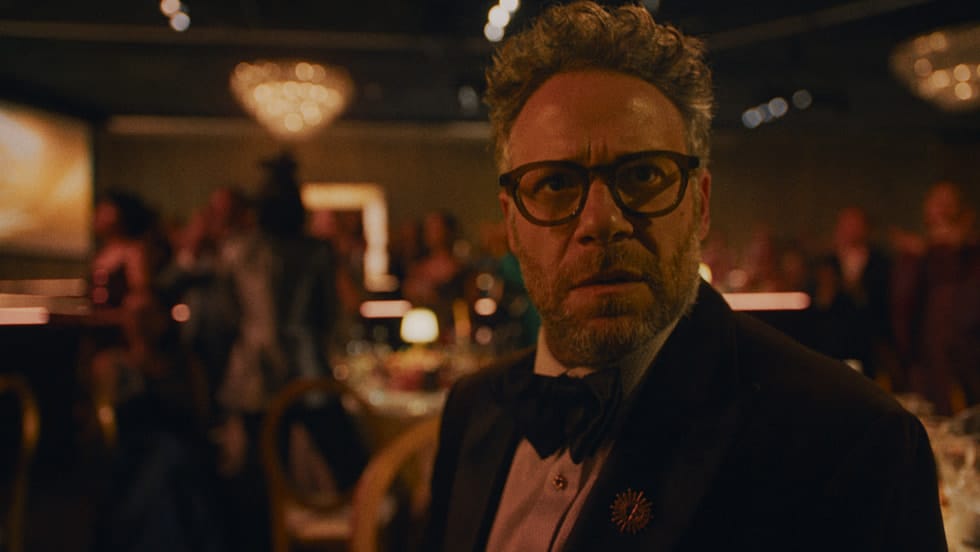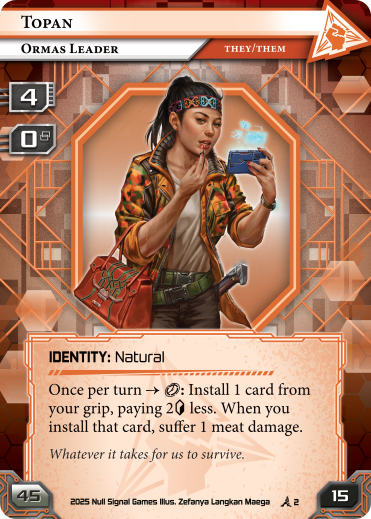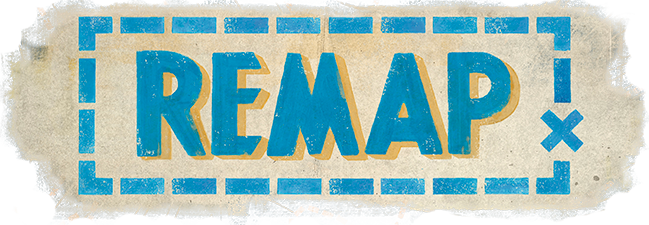Remember when you’d walk into a local music, book, or video store and there’d be an adorable section where the employees would recommend what they were interested in that month?
Welcome to our little version of it, called Remap Recommends.
It's a chance for the staff at Remap to let you know what they've been playing, reading, listening to, or watching.
Patrick Recommends: The Rehersal*

Should you recommend people watch something that you found, at times, morally reprehensible? I was as huge fan of comedian Nathan Fielder's Showtime show, The Curse, but somehow dodged Nathan For You. Fielder's absurdist, reality-bending company seems right up my alley, and yet, I'd somehow gone large unexposed. But in preparing for the second season of The Rehearsal, I ended up watching the first season of The Rehearsal, almost by accident. I'd intended to catch an episode or two to capture the tone, not shotgun the whole thing. But in short order, I was utterly captivated by Fielder's straight faced ridiculousness, mixed with the show's earnest tone. Plus, it was funny to watch someone blow millions of dollars now what often amounted to very silly bits. That's good TV.
Mild spoilers for The Rehearsal to follow, but I'll avoid specifics.
The show presents itself as a journey in helping people work through a problem by staging how it might happen before it does happen, aka the "rehearsal." That's a compelling pitch, and the first episode is straight up a masterclass in walking the show's weird tone. It's probably a masterpiece. But as it goes on, the spotlight shifts from Fielder's subjects to Fielder himself, but part of Fielder's trick is you cannot tell if he's playing a character. He's an unreliable narrator. OK, fine. But when this combines with an ongoing, elongated storyline about preparing to become a parent ends up involving putting a number of young children in situations where they could—and do—become emotionally confused, I was out on the show. I nearly threw my remote at the TV at one point in disgust over an arc related to this topic.
Like I said, morally reprehensible. Lotta blame to go around, not just Fielder. And it's obvious true my role as a parent played a big, potentially irrational, part of my reaction. Nonetheless. I cannot say it wasn't captivating television, though, which leaves me in a mixed place as a recommendation. It got me to ask a lot of questions, I'm just not sure if they were the questions the show wanted me to ask.
Rob Recommends: The Studio

I'm a sucker for insider-y Hollywood satires. The Player hit me like a lightning bolt when I first saw it as a kid, and I've loved the genre ever since, for all its self-indulgence and self-congratulation masked as critique. With that background, I knew I'd at least check out Seth Rogen's AppleTV series. I did not expect it to have some of the best filmmaking I've seen all year.
The pitch on The Studio is pretty conventional: Seth Rogen is a Hollywood exec named Matt whose boss and mentor is fired as the head of the studio and he takes her place with dreams of making the kinds of great, commercial art he grew up on. The chalice is poisoned, however, because to get the job he has to sign on to produce the kind of vapid, brand-driven garbage that he thinks has ruined the movie business. Our hero is proven to be no hero at all, a bit too gutless to stand up for his beliefs when it matters, and a bit too clueless to actually navigate the job he's been elevated to. There is a lot of Curb Your Enthusiasm in The Studio, though mercifully it's less excruciating if you find the awkward secondhand embarrassment of that series tough to endure. The Studio keeps things moving, within and between episodes.
One way it does that is by using long takes. I am not sure it ever shoots a scene as anything other than a single continuous shot, a "oner" in film parlance and the name of The Studio's instantly classic second episode. Matt's love of the movie business and fanboyish awe at oners leads him to crash the set of a movie where Sarah Polley is shooting a critical single-shot scene at magic hour in the hills above LA. Across twenty-five minutes with no evident cuts (the episode even has Polley spit at the idea of using 1917-style whip-pans to disguise cuts instead of doing a true oner), Matt wreaks well-meaning havoc on the production.
The shooting style makes ever scene jangle with nervous, frantic energy, but also calls attention to the absolutely gorgeous locations and lighting that The Studio uses throughout. With a warm, sepia-tint to the colors emphasized by costumes and the mid-century furniture and architecture that the series showcases, it feels like a movie about the present day glimpsed through the lens of the 1970s. It's funny and awkward and stupid but it's beautiful, too.
Chia Recommends: Netrunner

I know, I know. “But Chia,” you say, “you’re always recommending Netrunner! What makes this week any different?” Well, it turns out I have a very good reason to make Netrunner my recommendation this week: Null Signal Games are releasing new cards! Elevation is the newest set and will make up the second half of the “core sets” for Netrunner, and at the same time all of the old Fantasy Flight Games cards are rotating out of Standard play.
This marks a huge change in the card pool for Standard, since 2018 this is the first time that all the sets in Standard are actively purchasable from NSG. I’m biased as a person who started playing well after the last FFG cards were printed, but it really feels like Null Signal Games has done a phenomenal job of making interesting new cards while avoiding a bit of the power creep that plagued some of the later sets during the FFG run. And from what we’ve seen of Elevation so far, they’re showing no signs of slowing down.

For the uninitiated: Netrunner is an asymmetric 1v1 card game that has one player taking the role of the Corp, building servers and trying your best to advance your nefarious agendas, and the Runner, who is hacking into those servers and trying their best to find and expose those agendas. The corporation plays all of their cards face down so hidden information plays a huge role in the game. The game has an action based structure, each player has an allotted amount of clicks (4 for the runner, 3 for the corp) that you use to do basic actions (like draw, gain money, or play cards). This system means that you’ve got more ways to mitigate the inherent randomness of card games and feels like Richard Garfield’s response to mana-flood (yes, the original 1996 release was made by the same guy that made Magic!)
The new set showcases so many reasons I have loved this game, and even more importantly, why I love the broader netrunner community. Not only is the game mechanically spectacular, but NSG really goes the extra mile when considering inclusivity and representation. There are many queer members of NSG and their input shows in so many ways. Elevation is set in a futuristic version of Borneo, in Kalimantan, and includes many new Identities, the cards that you essentially play as and build your deck around, and in them you see a breadth of people. These identity cards include pronouns for the different runners, and on the back you get a story blurb for each.


This seems like a small, perhaps forgettable inclusion, but I think the fact that it’s 2025 and Netrunner is one of the only card games out there with queer people front and center that also forefronts that queerness on the card itself and not just in side stories feels like a damn shame. And the fact that the response from the community to this inclusion was resoundingly positive in a world where those identities are being put more and more under threat every day makes me feel welcome in a way that I can’t say of other gaming communities.
If you haven’t checked it out, I wholeheartedly suggest you take a peek at Netrunner. Start with System Gateway, and then the newest set Elevation. Join this growing community of people playing one of the best god damn card games I’ve ever played!
